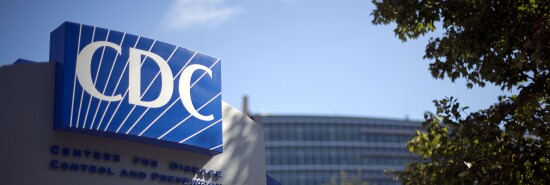
Congress is giving a misguided Christmas gift to CDC
Doug Badger and Drew Keyes
Video Embed
It’s the Christmas season in Congress. Just like a procrastinating college student cramming for finals, members have one foot out the door for Christmas break and the other pointed toward the work they should have already done. This lame-duck session is proving to be no different, with a variety of issues that Congress must address before heading home for eggnog.
Every lame duck brings its own form of Congress at its worst. This year, the public’s eye will be understandably focused on several high-profile issues. Congress has to pretend it won’t fund the government before coming to a last-minute deal (or two), the government is about to reach its debt limit, and there’s a war in Ukraine.
Lost in this yearly debate is what’s known among swamp creatures as the “Christmas tree” — everything Congress couldn’t pass before but now attempts to ram through when the public is focused on the holidays. One of the ornaments on this tree is a little-known pandemic preparedness bill that is trying to hitch a ride on must-pass government funding legislation.
REPUBLICANS WHO WANT TO MOVE ON FROM TRUMP LOOK TO GEORGIA
The bill, titled the PREVENT Pandemics Act, is a priority for retiring Sen. Richard Burr (R-NC) and Senate HELP Committee Chairwoman Patty Murray (D-WA). Instead of reforming the public health apparatus that responded so poorly to the pandemic, the bill rewards failure by giving more money to the Centers for Disease Control and Prevention and beefing up the public health workforce with handouts, including loan repayment subsidies, funding for recruitment and training, and expanded educational grants. It also rewards the heads of various CDC centers and institutes with new five-year terms, freezing the agency’s senior management in place despite their dubious performance.
The legislation also creates new bureaucratic entanglements, rewards the CDC’s epic failure in developing real-time data capabilities with more money and more authority, and doesn’t do enough to combat foreign influence on biomedical research or to promote lab safety.
The bill fundamentally does the only thing Congress knows how to do: throw money at the problem. The few thoughtful, substantive reforms it does contain are overshadowed by the new bureaucratic entanglements it creates, such as a new position in the White House for pandemic response, while simultaneously increasing the CDC’s authority. At the same time, it does nothing to prevent mission creep at the agency.
The people’s trust in public health agencies is currently at historic lows. People have tuned out the CDC — for example, ignoring its recommendations to parents to vaccinate young children and to adults to get a reformulated COVID booster.
And the CDC has earned that loss of confidence.
To restore that confidence, Congress must apply the important lessons from COVID failures and restore the CDC and other federal emergency response agencies to their core missions. This bill does attempt to address important issues, such as making the Strategic National Stockpile more flexible, adaptable, and mission-ready, and a review of the FDA pandemic response. But none of these solutions has had any debate in the House of Representatives.
Instead of deliberating, Congress is making backroom deals to reward the CDC’s failures, smuggling the provision into law through a must-pass government funding bill.
Such negligent legislating is what set the stage for the CDC’s botched pandemic response. For too long, Congress has failed to assert the people’s will in overseeing these agencies. For too long, a few power brokers have held the pen in “reforming” them without the wider body politic having a real chance to participate.
It’s time to break that pattern. The new Congress should undertake a comprehensive review of the CDC’s failure. It should craft reform legislation only after hearing from outside experts rather than relying heavily on the agency and the broader public health establishment for advice. It should proceed deliberately through regular order. This problem isn’t new. The CDC itself has no single overall authorizing law. This has allowed the executive branch to utilize the nation’s public health agencies to push an ideological, social agenda instead of focusing on its core mission.
Critics may counter that crisis governing is necessary to get bills such as this one across the finish line. But that’s just not true. Next year, the Pandemics and All-Hazards Preparedness Act is set to expire, creating a natural must-pass moment in which Congress can properly debate and evaluate reforms.
Until then, Congress should focus its efforts in the lame duck on the work that must pass now, principally funding the government without expensive or extraneous add-ons. The hard work the senators put in will serve as a starting point for a fuller, more dynamic debate in the new Congress.
CLICK HERE TO READ MORE IN THE WASHINGTON EXAMINER
Drew Keyes is a senior policy analyst at the Paragon Health Institute. Doug Badger is a senior fellow in the Center for Health and Welfare Policy at the Heritage Foundation.
